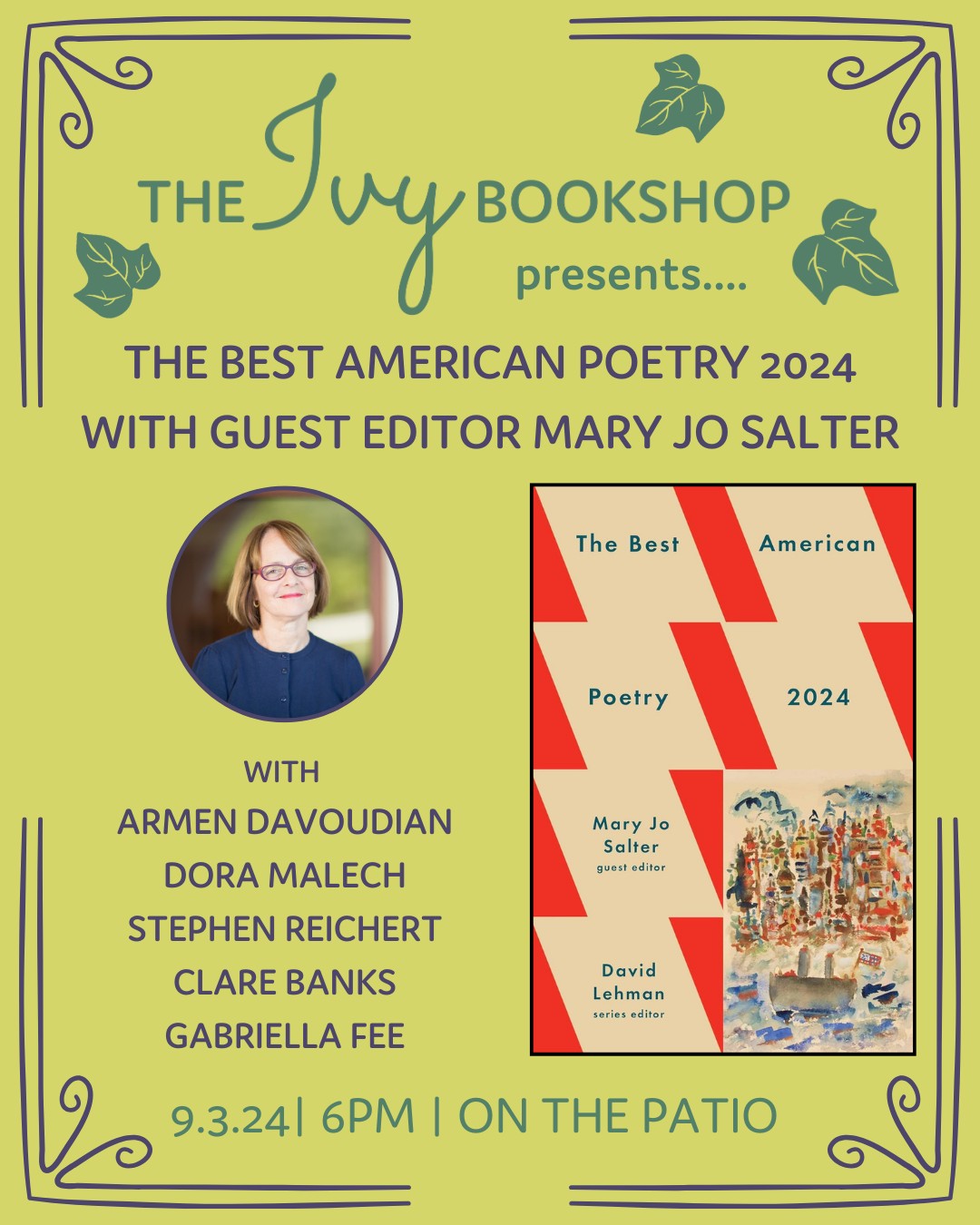
Mary Jo Salter will be the guest of Tom Hall’s renowned “Midday Show” today probably between 12:40 PM and 1 PM East Coast Time .https://www.wypr.org/show/
We Are All Nobody: Mary Jo Salter on Finding Beauty and Community in Poetry
“Let’s try to put our own vanities aside when we write poems, and let’s read the poems by other people that make us feel most alive.”
“I’m Nobody! Who are you?” asked Emily Dickinson. It’s clear to many of us who she was and is—one of the greatest poets ever—and certain poems of hers suggest she knew it herself. Still, she had a sense of humor about swelled heads, and we love the zinger that concludes her eight-line Nobody poem:
How dreary—to be—Somebody!
How public—like a Frog—
To tell one’s name—the livelong June—
To an admiring Bog!
Readers delight in these lines because we recognize the empty pomposity that too often afflicts people (that is, other people). We also suspect that the hermetic Dickinson (who eschewed publication, dismissing it as “the Auction / Of the Mind of Man”) seems specifically to be skewering that subset of people called writers: the people who may have little to tell us other than their bylines, but who look to the admiring “bog” to confirm their brilliance. And among the general class of writers, which includes bestselling novelists and blockbuster screenwriters, we poets risk being the most deluded about our prospect of fame in that bog, now or ever.
The greatest poems may even, in exemplifying beauty, just marginally re-define it.
The business of poets, I would argue, includes at least some of these aspirations: to witness the world, including the layered, shifting moods of their own minds’ interiors; to feel deeply and also to think through their feelings; to experience life with all of the senses, which sometimes get profitably jumbled; to express some aspect of the human comedy and the human tragedy by exploiting the unique resources of a particular language or languages; to suggest with figures like simile or metaphor the surprising congruity of seemingly unlike things; to speak to their contemporaries about contemporary matters; to place themselves also within the history of humankind, including the history of literature, and to add something to it; to channel our universal musical instincts, our childlike but never merely childish love of song; to dare to remain uncertain and paradoxical and inconclusive as life itself, while also making a finished “thing,” a poem, of beauty. The greatest poems may even, in exemplifying beauty, just marginally re-define it, sometimes without the awareness of the reader.
>>>
and furthermore, https://www.theivybookshop.com/event/the-best-american-poetry-2024-with-guest-editor-mary-jo-salter/
Go to Source
Author: The Best American Poetry
